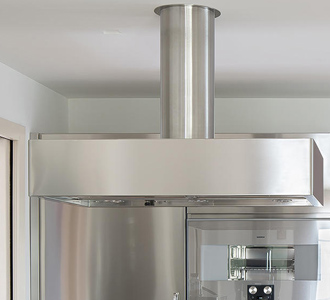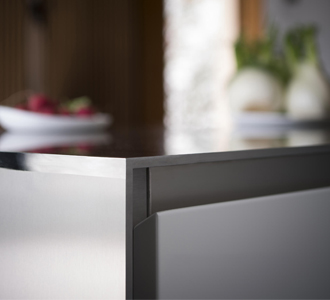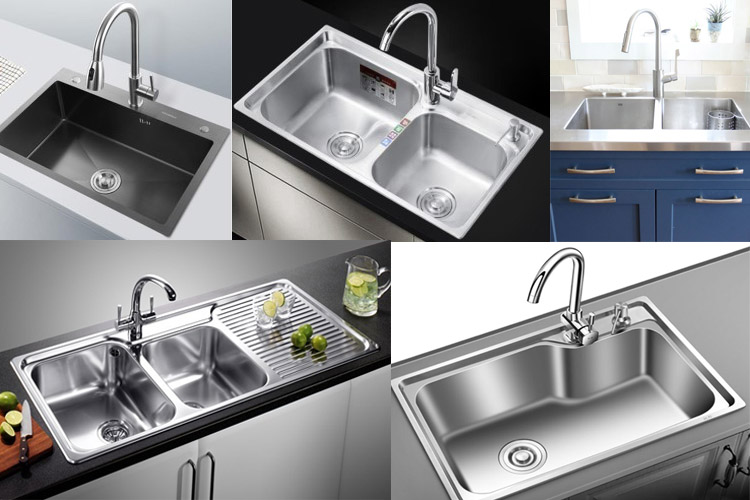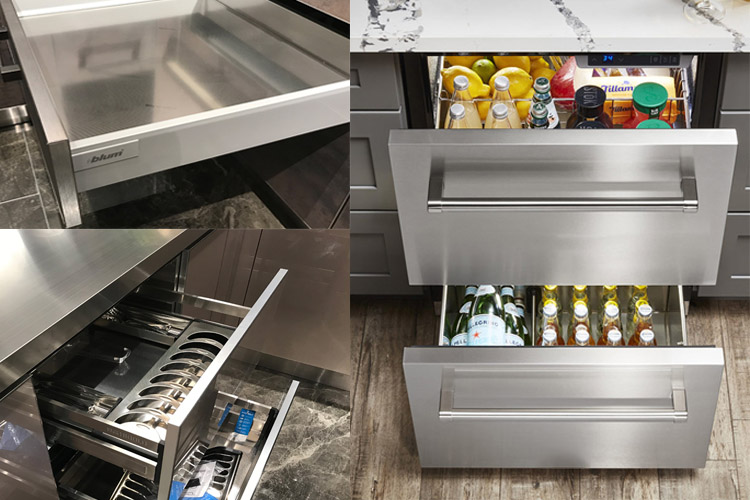European Wall Cupboards Motorized Modular Kitchen Cabinet in Stainless Steel
The perfect
layout of functions stainless steel kitchen cabinet consists of parts as below:
- five wall
cabinets with G-shape handle, double cutlery base cabinets
- built-in induction
cooker and T shape range hood
- single stainless
steel sink but large enough for a hung tray
- stainless steel base cabinet with glass sliding doors
Custom
|
Standard
|
More Options
|
Cabinet Door
|
Stainless Steel
|
Solid Wood/PVC/MDF/Laminate/HPL
|
Cabinet Carcass
|
Stainless Steel
|
MDF/Melamine/Plywood /Solid Wood
|
Back Panel
|
Stainless Steel
|
16 mm MFC
|
Door Panel Finish
|
Polishing
|
Wood Veneer/High Gloss/PVC /Solid Wood/ Acrylic
|
Counter Top
|
Stainless Steel
|
Artificial Stone/Natural Stone/Acrylic/ Laminate
|
Drawer & Basket
|
DTC Soft Close
|
Blum/Chinese TOP Brand/International Top Brand
|
Sink
|
Stainless Steel
|
Stone, Ceramic
|
Hinges & Handles
|
Stainless Steel
|
Aluminum/Copper/lron/Plastic/Wood
|
Other Hardware
|
DTC
|
Blum/Chinese TOP Brand/International Top Brand
|
Toe Kick
|
Stainless Steel
|
PVC/Aluminum/Wood
|
Packing
|
Knock Down Packing
|
Assembled/Flat Pack
|
Product Features:

|
T shape range hood
|
|
Stainless cabinet door with G-shape handle
|

|
Stainless Steel Sink

Stainless Steel Drawer

DOOR COLOR
More colors for
you to choose
How Do You Clean + Maintain Stainless Steel?
Stainless steel sinks and worktops require
regular care.
REGULAR CLEANING
1. Wash down the surface using water containing soap or
mild detergent.
2. Always rinse the surface with clean water and dry with a soft cloth.
3. A thorough cleaning operation can be completed, by polishing the surface
with a stainless steel polish and a soft cloth.
DISCOLOURATION
1. Any discoloration should be removed immediately using
a mild proprietary cleaner such as 'Cif' gently rubbing with the grain of the
metal.
2. After use rinse thoroughly as above, with clean water and dry with a soft
cloth.
3. Remove dirt and limescale deposits on a regular basis.
4. Do not use cleaning agents containing chlorine (generally sodium
hypochlorite) or hydrochloric acid.
5. If you use steel wool for cleaning, it must be made of non-rusting stainless
steel.
6. Avoid lengthy contact with salty liquids.
7. Avoid direct or prolonged contact with rusting objects (cast -iron pans or
iron filings).
8. Do not use your sink for dyeing or bleaching fabric or hair.
AVOID
1. Do not cut directly onto stainless steel worktops -
Always use a cutting board.
2. Do Not place hot pans etc, directly onto the stainless steel work surface -
Always use a pan stand.
3. Do not use course abrasive materials such as harsh scouring pads, wire wool
etc, which can scratch the stainless steel
surface. In addition metal particles left on the surface can quickly turn to
rust and leave rust stains on the surface.
4. Most common bleaches, toilet cleaners, photographic developing liquids,
acids, concentrated disinfectants, chlorine (often present as hypochlorite) and
strong alkalies, i.e. caustic soda, can lead to pitting of the stainless steel
surface. If any of these solutions in a concentrated form or otherwise, come
into contact with the surface, they should be thoroughly rinsed off as
described in 'Regular Cleaning'.
STAINS ON THE SURFACE OF YOUR SINK
These stains usually involve limescale deposits, which
appear depending on the hardness of the drinking water. These limescale
deposits retain dirt particles to a greater extent, with the result that
unattractive stains form in only a short period of time.Small iron and rust
particles from the water mains network may also make it appear as though there
are rusty marks, particularly in the case of new buildings or when repairs are
being carried out to the mains pipelines, and where cast-iron water pipes are
involved.